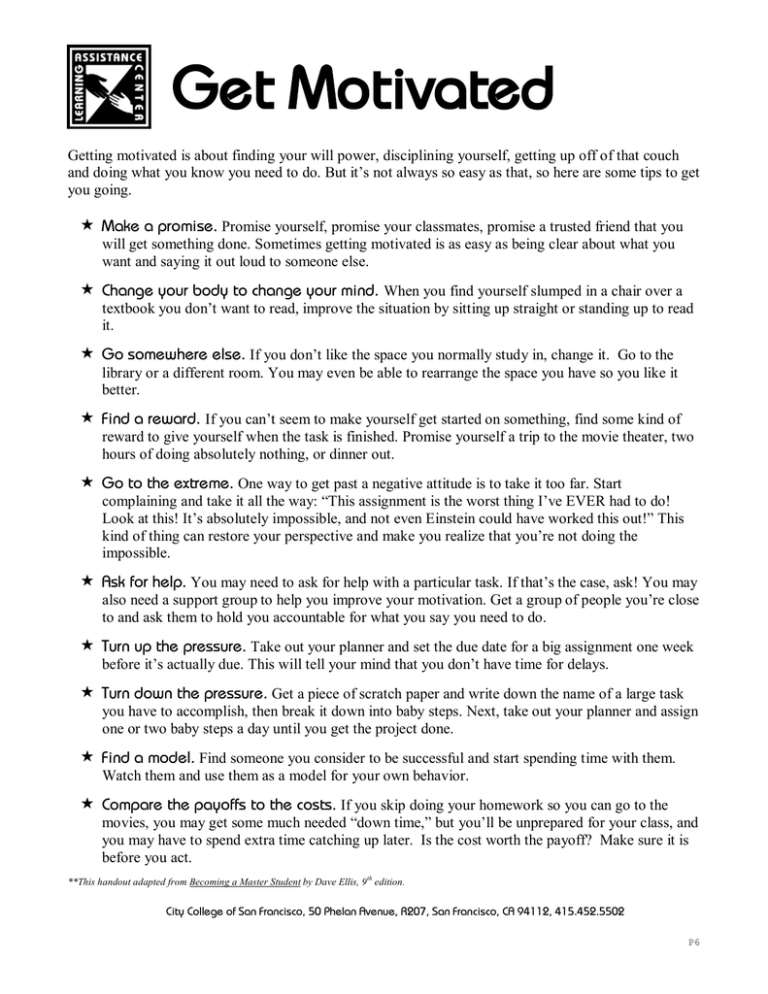Get Motivated
advertisement

Get Motivated Getting motivated is about finding your will power, disciplining yourself, getting up off of that couch and doing what you know you need to do. But it’s not always so easy as that, so here are some tips to get you going. Make a promise. Promise yourself, promise your classmates, promise a trusted friend that you will get something done. Sometimes getting motivated is as easy as being clear about what you want and saying it out loud to someone else. Change your body to change your mind. When you find yourself slumped in a chair over a textbook you don’t want to read, improve the situation by sitting up straight or standing up to read it. Go somewhere else. If you don’t like the space you normally study in, change it. Go to the library or a different room. You may even be able to rearrange the space you have so you like it better. Find a reward. If you can’t seem to make yourself get started on something, find some kind of reward to give yourself when the task is finished. Promise yourself a trip to the movie theater, two hours of doing absolutely nothing, or dinner out. Go to the extreme. One way to get past a negative attitude is to take it too far. Start complaining and take it all the way: “This assignment is the worst thing I’ve EVER had to do! Look at this! It’s absolutely impossible, and not even Einstein could have worked this out!” This kind of thing can restore your perspective and make you realize that you’re not doing the impossible. Ask for help. You may need to ask for help with a particular task. If that’s the case, ask! You may also need a support group to help you improve your motivation. Get a group of people you’re close to and ask them to hold you accountable for what you say you need to do. Turn up the pressure. Take out your planner and set the due date for a big assignment one week before it’s actually due. This will tell your mind that you don’t have time for delays. Turn down the pressure. Get a piece of scratch paper and write down the name of a large task you have to accomplish, then break it down into baby steps. Next, take out your planner and assign one or two baby steps a day until you get the project done. Find a model. Find someone you consider to be successful and start spending time with them. Watch them and use them as a model for your own behavior. Compare the payoffs to the costs. If you skip doing your homework so you can go to the movies, you may get some much needed “down time,” but you’ll be unprepared for your class, and you may have to spend extra time catching up later. Is the cost worth the payoff? Make sure it is before you act. **This handout adapted from Becoming a Master Student by Dave Ellis, 9th edition. City College of San Francisco, 50 Phelan Avenue, R207, San Francisco, CA 94112, 415.452.5502 P6




